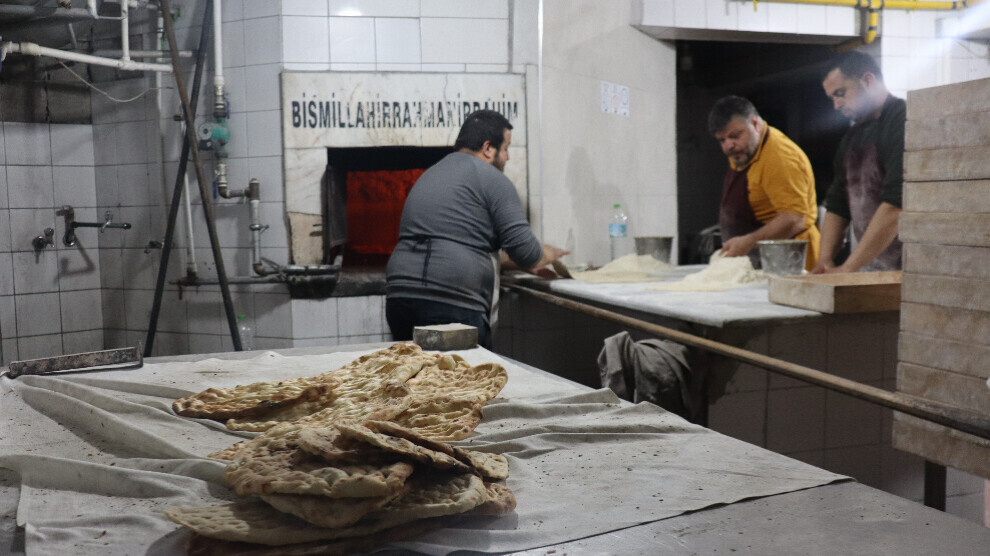Arab Alevis in Hatay try to heal their wounds
The Arab Alevi community in Hatay tries to heal their wounds after Maraş-centered earthquakes that hit 11 provinces on February 6.
The Arab Alevi community in Hatay tries to heal their wounds after Maraş-centered earthquakes that hit 11 provinces on February 6.

Arab Alevis try to heal their wounds in the Defne district of Hatay, which saw the severest destruction and highest death toll among the 11 provinces struck by two earthquakes on 6 February.
Criticizing the state for not taking care of their community, Arab Alevis try to recover from the devastation through popular solidarity.
One of the Arab Alevis living in the Upper Harbiye neighbourhood in Defne, Ali Haydar Kızılkaya, reopened the bakery in his restaurant to provide for the Arab Alevi community that has been totally neglected by the Turkish state in the aftermath of the devastating earthquake.
Opening the doors of his slightly damaged bakery after the earthquake, Kızılkaya bakes around 1500-2000 bread every day and distributes it to the people and soup kitchens established by volunteers. “Some charitable people bring flour and food supplies. We use the flour for making bread, and we deliver the supplies to the people in need,” he said.
Kızılkaya spoke to ANF and said that the state had left them alone from the first day: “Unfortunately, we could not receive any aid from the state at the first stage. We could not see the police and soldiers on the ground during the first week. I was doing my military service in Amasya when the earthquake occurred. Then they let us go on leave. I managed to reach Hatay from a distant part of the country in one day, but the state didn’t. In fact, the state has never come here.”
Kızılkaya continued: “One day after leaving Amasya, I came here the next morning, totally by my own means. When I arrived here, there were only volunteers. They bought supplies such as water and food. We helped them distribute those aid materials. However, to our regret, we could not see any state officials. We were left to our fate here.”
Noting that the state left both Hatay and Arab Alevis to their fate, Kızılkaya said that it was volunteers that came here and pulled dead bodies from rubble, not the state.
“For five days, we watched our relatives’ dead bodies every day, but we could not pull them out. We have suffered losses, everyone has. We are still in shock anyway, and we are not aware of what we are living through exactly. Everyone’s lives have been destroyed and we do not see the state with us. As the Arab Alevi community, we have deeply felt how they left us alone.”
Kızılkaya pointed out that people migrated from Hatay in search of a safe place both for themselves and their families. “We, the Arab Alevis, will certainly return home. Right, most of our people have left, but I am sure they are eager to come back home. We cannot do it anywhere else. People will return as soon as things get better.”